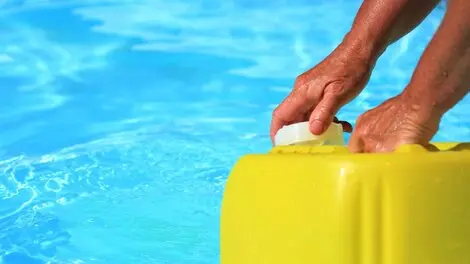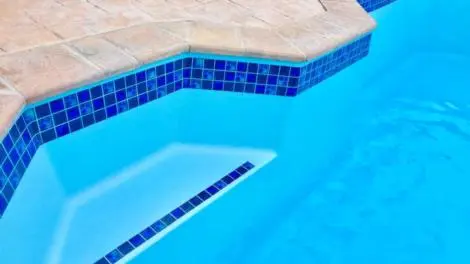Heating your pool can make all the difference on a typical swimming day.
Heat pumps can do this without consuming too much energy. They help enhance the swimming experience with the press of a button.
To find out how large your pool heater ought to be, consider the specifications of your pool and the pumps. The size of your pool, the weather, the frequency of use, and the kind of pool cover you use all factor into the heat pump’s size. So, let’s calculate the size of your future heat pump with a few simple tips.
Finding The Right Pool Heat Pump Size
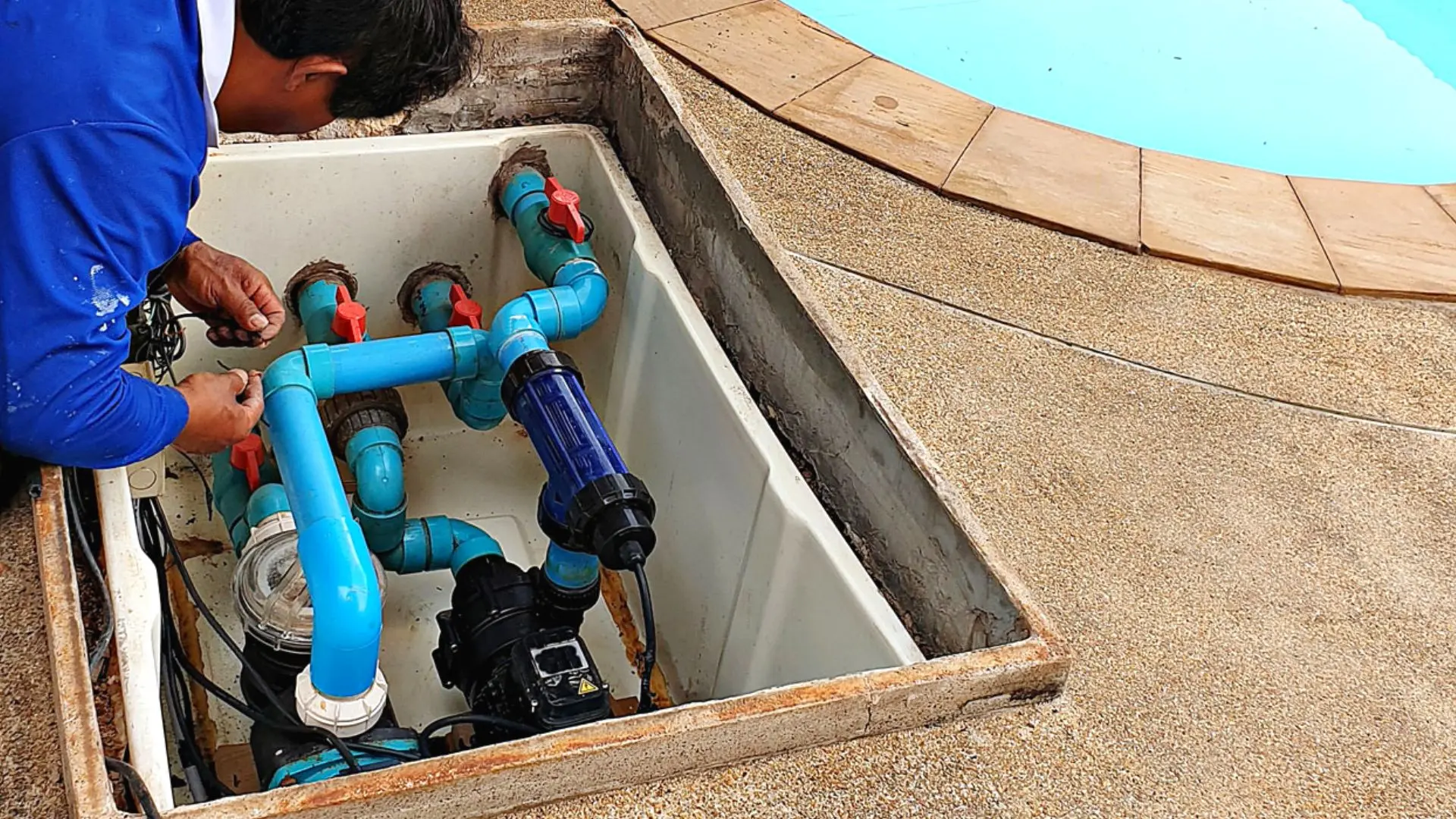
Using electricity and refrigerant, a heat pump transfers heat from one location to another. The heat pump draws heat from its vicinity and sends it into the refrigerant, and once the refrigerant warms up, the heat is released to the pool. It’s a simple matter of transferring energy from low to high pressure.
That’s how a heat pump works. We needed to explain its basic functioning before we proceeded to the next part.
As your pool grows, it will require more power to heat it. Your heater may consume a lot of energy and heat the pool only slightly, which is not ideal. If the pool loses heat faster than warmed, your heat pump is too small.
Ideally, a heat pump should warm a pool by 0.2 degrees Celsius every hour. Pumps require 1.16 Wh of energy to heat a litre of water by one degree. So, to heat 10,000 litres of water, the pump will need about 11.6 kWh of energy.
Considering these numbers, a pool pump will require around one kWh of energy to heat a pool that can hold 862 litres of water. You can use this figure to adjust every other variable to get the optimal power output for your pool.
Always remember that the power consumption will increase as the pool volume rises. Conversely, the water temperature increase per hour will decrease as the pool volume rises.
Other Things You May Consider
Calculations aside, there are a few factors that you may keep in mind when sizing your pool heater. These include:
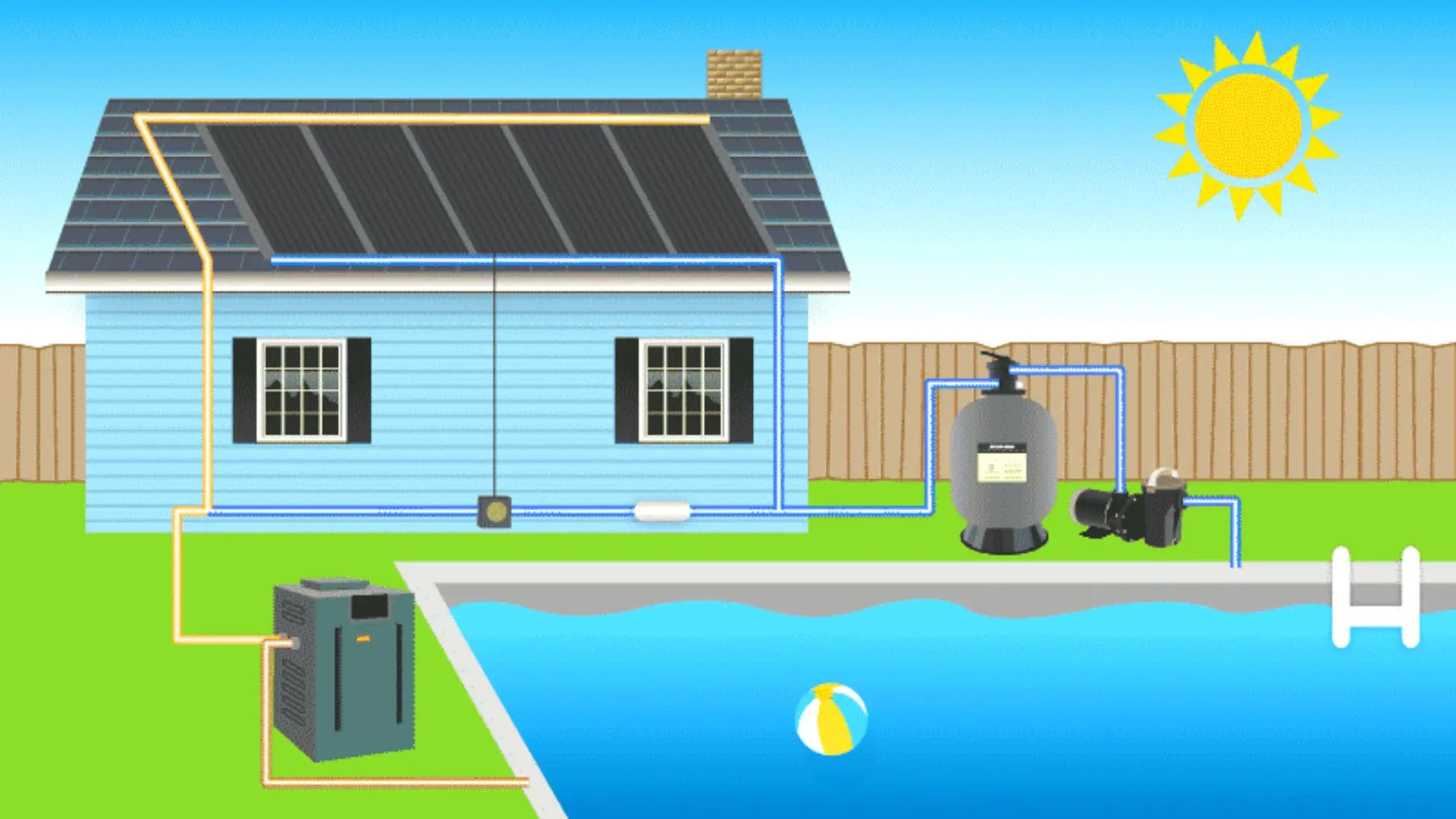
1. Weather
The climate will significantly affect how frequently you use your heat pump. A pool heater won’t be handy for the better part of the year if you live in a tropical area. In other regions, you may consider purchasing a small pool heater.
However, a pool heat pump is a worthwhile investment if you reside in colder climates. The guide above can help you properly size the heater for your pool.
2. Frequency Of Use
How often do you swim in your pool? If the answer is “frequently,” you may size the heater according to the numbers and calculations mentioned before this section. If you’re a light swimmer, it might be a good idea to purchase one that is a little smaller in size.
3. Pool Location
The time it takes to heat an indoor pool instead of an outdoor pool will vary significantly. Indoor pools get no heat from the sun, requiring much more time to heat up. Outdoor pools have no issues with this.
Conversely, outdoor pools will take much more time to heat if you live in colder areas.
4. Cost
An electric heat pump needs to be energy-efficient. Electrical heaters are generally more cost-effective than their gas heater counterparts. The less time and energy the electric heat pumps take to heat the pool, the more money they’ll save.
5. Heat Pump Vs Gas Pump
With the advent of heat pumps, gas pool heaters are a thing of the past. Heat pumps are the winner because they have a longer life and lower energy consumption.
Maintaining your swimming pool heat pump well can extend its life by up to 10 years. Keep the heat pump pool heater free of debris, including leaves and pine needles, service it regularly, and you’re good to go.
Can A Pool Heat Pump Be Too Big
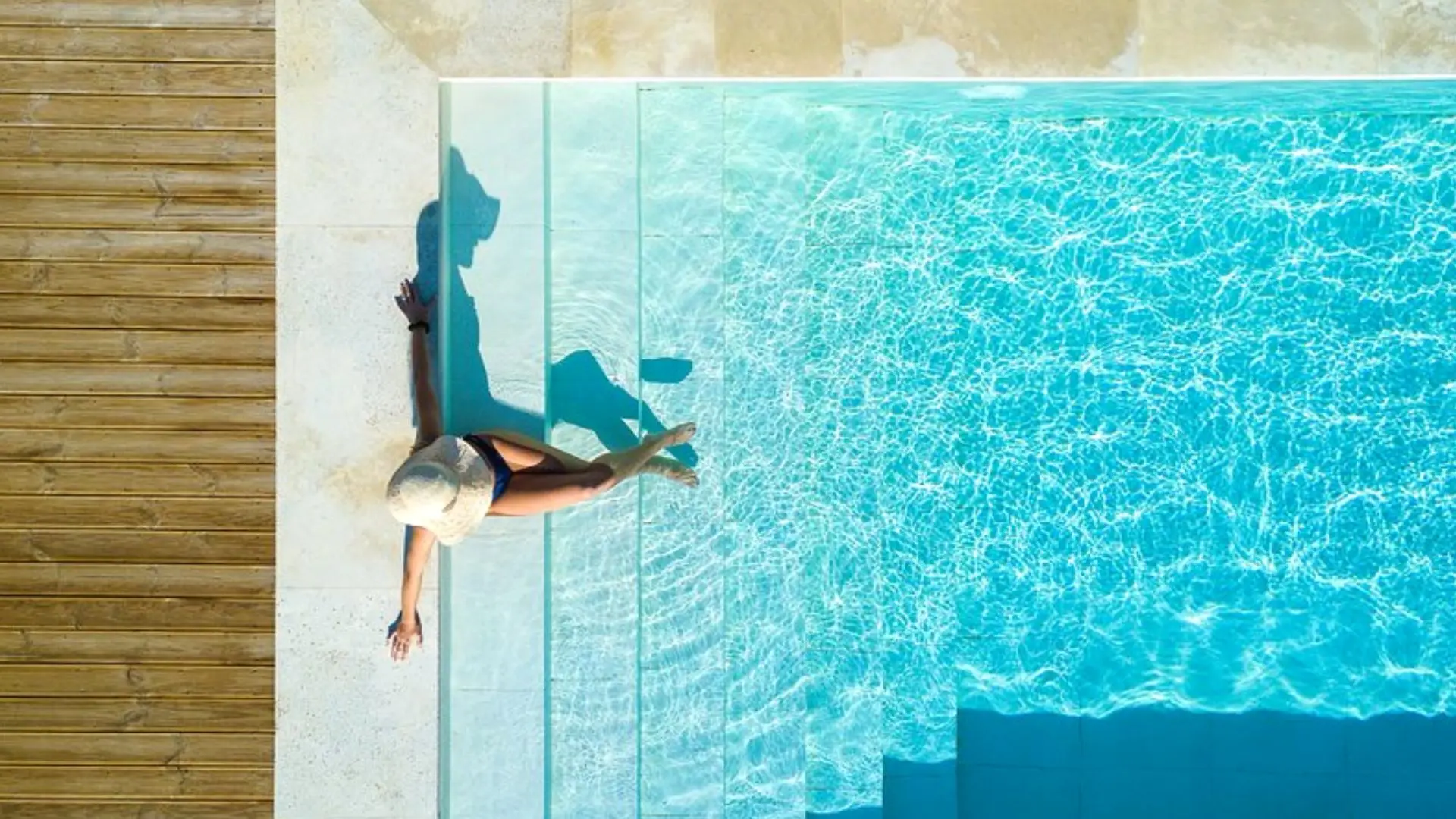
A heat pump can only be too small for a pool. You won’t lose much if your heat pump is larger than recommended for your pool. A larger heat pump will warm your pool faster while reducing energy costs.
So, if you’re in a rush to have your pool heated as soon as possible, choosing a large heat pump is better.
What Happens If The Heat Pump Is Too Small?
Your pool will lose heat faster than the pump can provide it. This means that the pump will consume energy and have no results to show for it. It will waste your time, energy, and money in a futile exercise. So, it would be best to replace the pump or use it in a smaller pool, if available.
Choosing A Heat Pump For Your Pool
Pool heat pumps are not a small investment in any way.
They are expensive and consume a lot of energy. So, before purchasing your heat pump, ensure it’s not too small for your pool. Your future pool heater’s size and power consumption will vary depending on the abovementioned factors.
As far as heat pumps are concerned, it’s advisable to make sure you are aware of the ins and outs of the device. With careful consideration and perhaps a little help from an expert, you can choose an appropriately sized heat pump in no time. Make sure you speak to our team at The Pool Co for expert advice from our Sydney pool builders.
And, before you go, for an alternate way to heat your pool, check out our guide on solar pool heating.
See you in the following guide!

